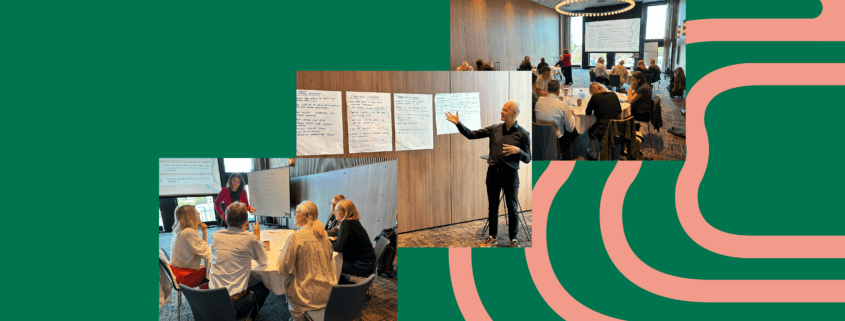Fostering inclusive leadership: Key insights from day two of the EU ‘Beyond Unconscious Bias’ training in Copenhagen
The second and final day of the EU Project “Beyond Unconscious Bias” training, hosted by CEC European Managers’ member organisation in Denmark, Lederne, took place at the Scandic CPH Strandpark.
Led by Barbara De Micheli of the Fondazione Giacomo Brodolini, the day kicked off at 9AM with reflections on the previous day’s discussions around inclusive leadership and its importance in modern organisations.
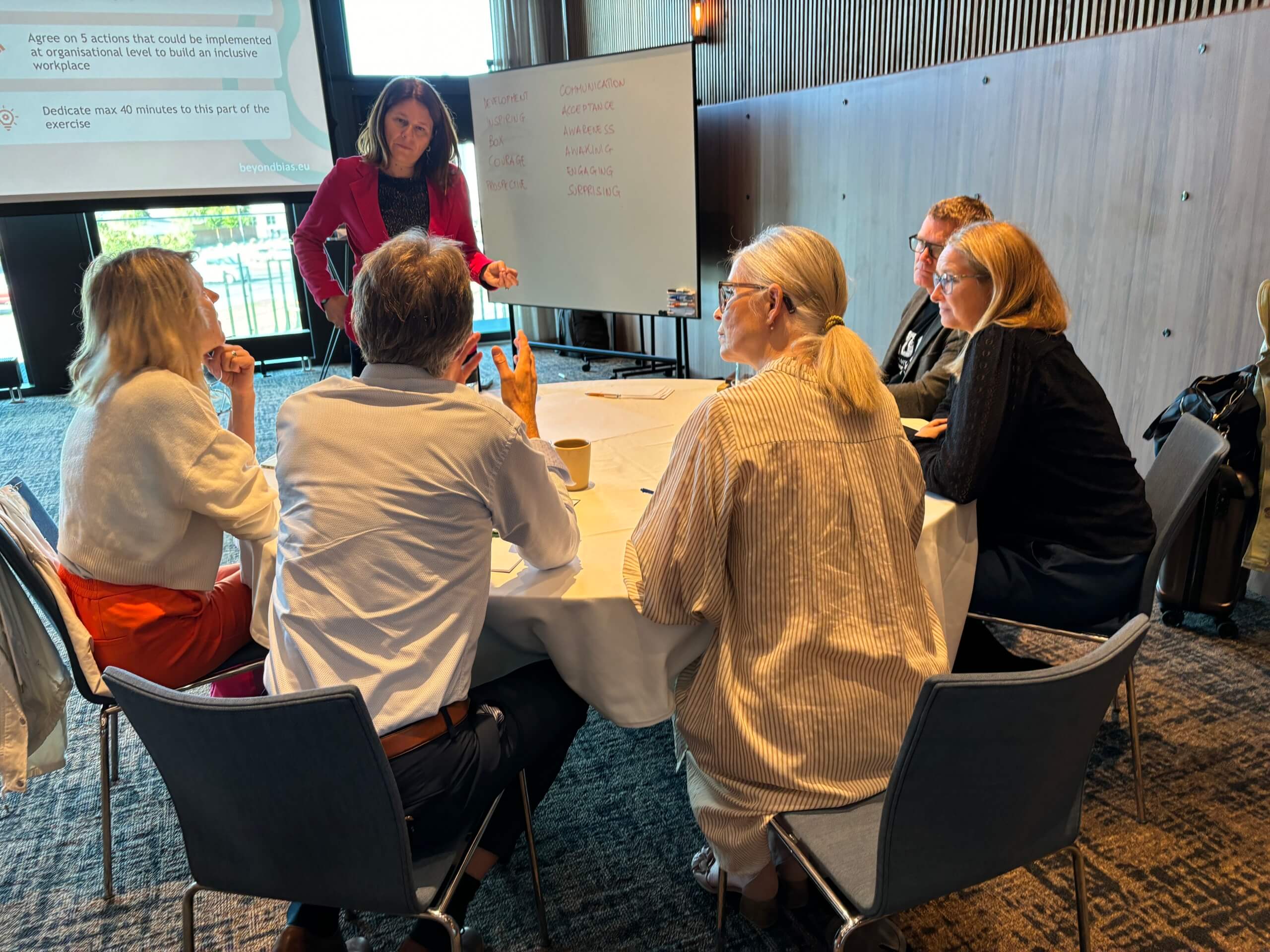
A key point raised during the session was understanding the “why” behind inclusive leadership. Torkild Justesen, Secretary General of CEC European Managers, emphasized that inclusivity must not only engage employees but also serve the business interests of companies.
He underlined that companies thrive when inclusivity aligns with economic success, creating both an inclusive environment and a competitive advantage.
Andreas Bücker of the European Federation of Managerial Staff in the Chemical Industry (FECCIA) asked about the correlation between inclusivity and economic performance. Barbara De Micheli referred to some studies but highlighted concerns about their methodologies. She urged for a more critical approach when linking inclusivity with business metrics.
Core aspects of inclusive leadership
As the training progressed, participants delved into the six pillars of Inclusive Leadership:
- Visible commitment
- Humility
- Awareness of bias
- Curiosity about others
- Cultural intelligence
- Effective collaboration
Leaders attending the training explored how language plays a crucial role in reinforcing or challenging unconscious biases.
One notable example came from participants who discussed how gendered language also has different connotations depending on our language. For example, the German language has a different impact than the Italian language regarding the use of gendered words, which could influence perceptions and team dynamics.
Leaders acknowledged that improving the use of language could help change how teams perceive one another and foster a more inclusive atmosphere.
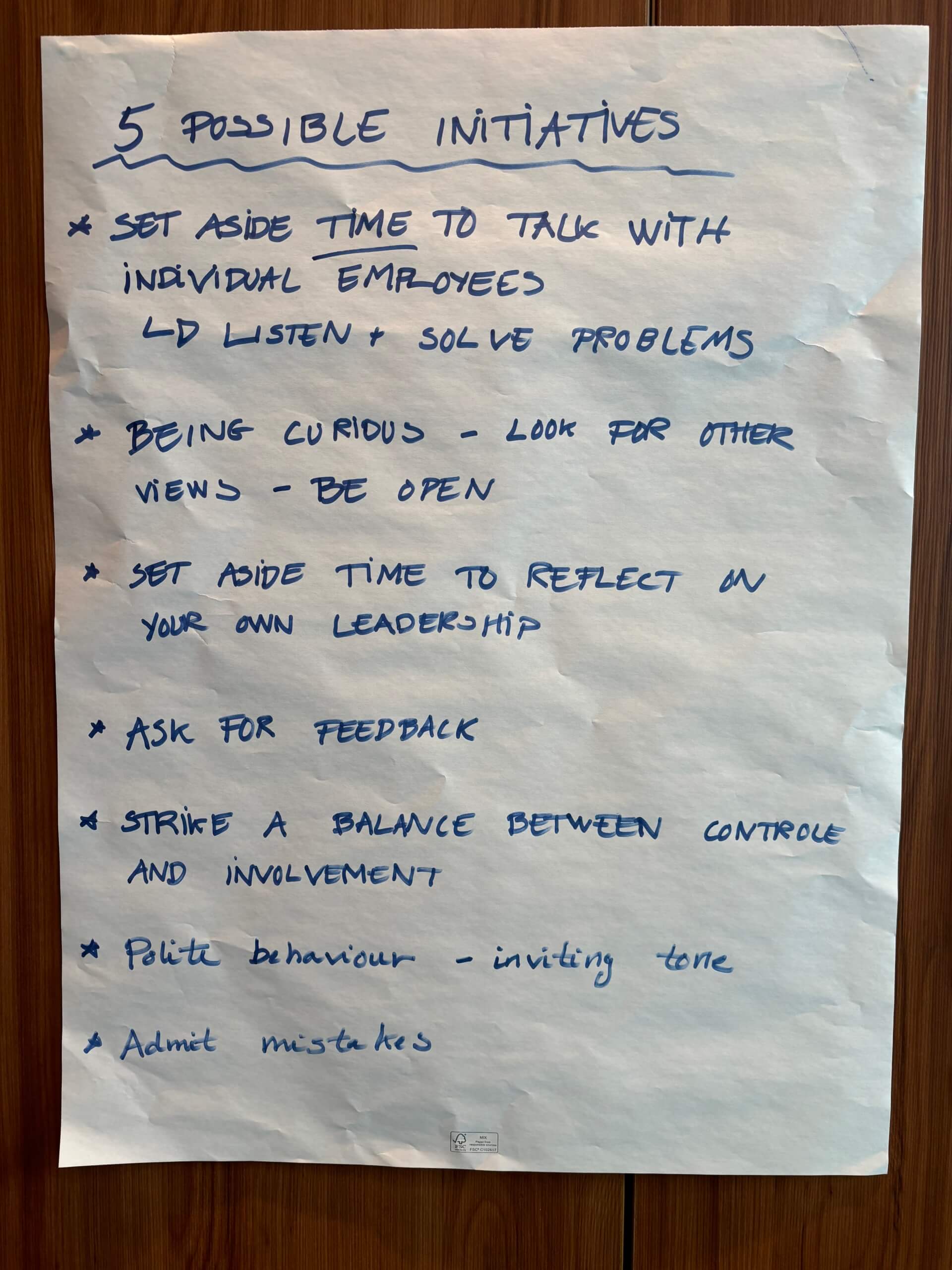
Swedish managers brought forward examples from their workplaces, where female managers offering assistance to male colleagues could sometimes be perceived as a threat.
This dynamic, they explained, reflects broader societal norms and underlines the need for managers to foster inclusive environments that bridge these misunderstandings.
Reflection on Leadership behaviour
The workshop also provided space for deep reflection on the behaviours that leaders bring to their roles and how unconscious biases impact managerial decisions.
During group discussions, participants examined how biases often serve as personal rewards or means of maintaining safety—for example, when managers hire individuals with similar educational or cultural backgrounds.
De Micheli warned that “feared leaders will, in time, be replaced by the teams they manage.”
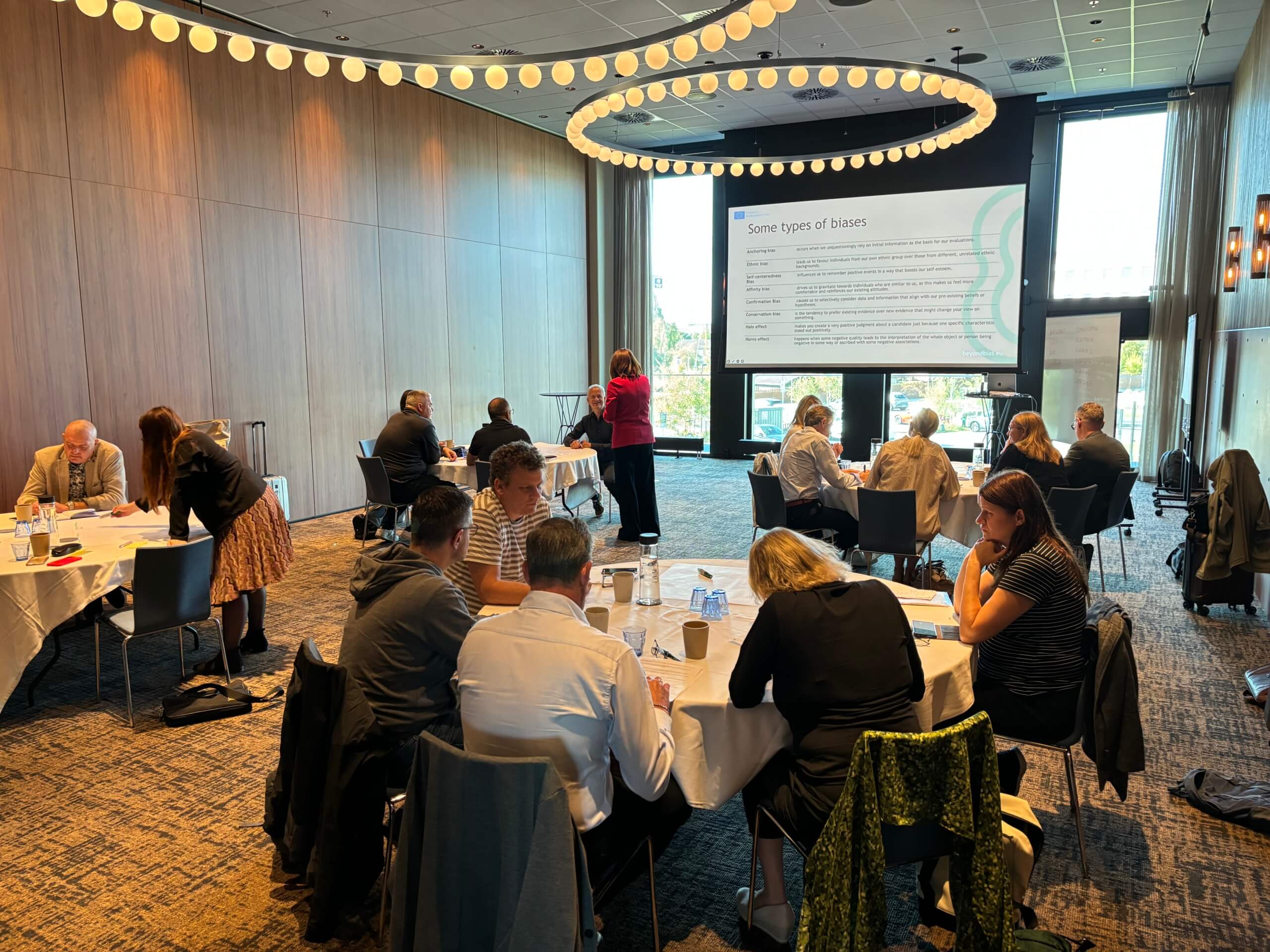
Nordic leaders shared their experience with a different challenge—their leadership style often lacks explicit language, as described by Anders Koch, Head of International Relations at Lederne: “We often expect people to read our minds.” This tendency for indirect communication can lead to misunderstandings and create challenges when fostering inclusivity.
Feared leaders will, in time, be replaced by the teams they manage.
Curiosity also emerged as a significant leadership trait. Both employees and employers, leaders agreed, need to cultivate curiosity, as it fosters innovation, helps view problems from multiple perspectives, and ultimately strengthens company values. One leader succinctly captured this idea, saying, “To build values, first you need to have them.”
Inclusive communication and safe spaces
One of the discussion themes was how to support introverted team members, ensuring they have space and time to contribute to conversations.
Leaders highlighted the importance of creating “safe spaces” for these individuals to communicate meaningfully.
As the day wrapped up, Barbara De Micheli invited participants to attend a public event scheduled for September 18, 2024, at 3 PM, to be held online.
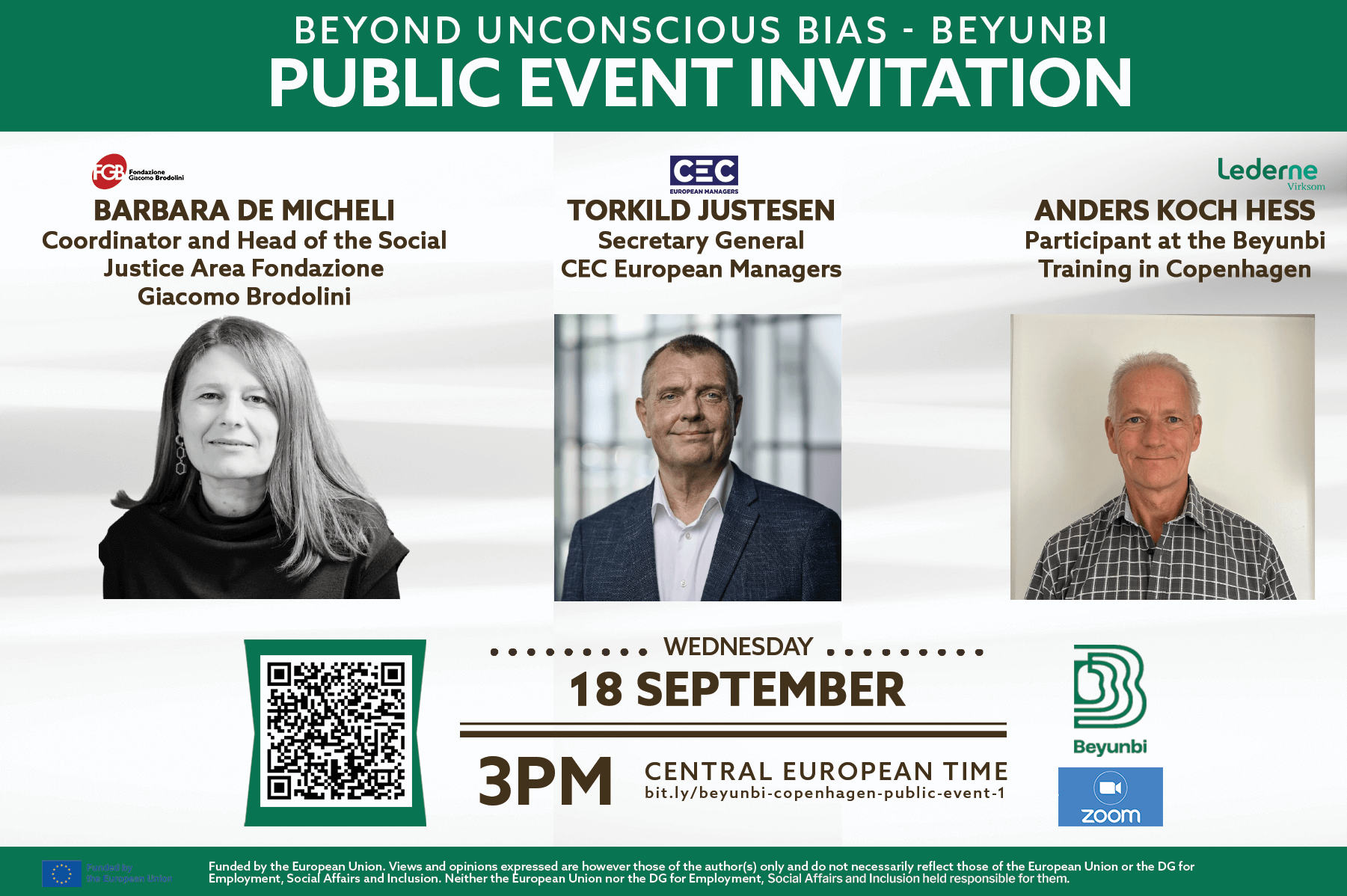
During this event, survey results conducted by the University of Southern Denmark will be presented, and insights from the Copenhagen training will be shared with the wider public.
Next steps
Participants expressed their satisfaction with the training, noting how they will apply the lessons learned to their organisations. “We will take this new knowledge home and disseminate it through our organisations. We will try to be more inclusive and clear from now on,” one manager commented.
The Beyond Unconscious Bias project continues its mission with upcoming sessions in Paris on September 31 and October 1, followed by the Final Conference in Brussels on November 27.
More information about the initiative can be found at beyondbias.eu.
The training in Copenhagen marks another step forward in promoting inclusive leadership across Europe, with managers taking the lead in reshaping workplace cultures for the better.

